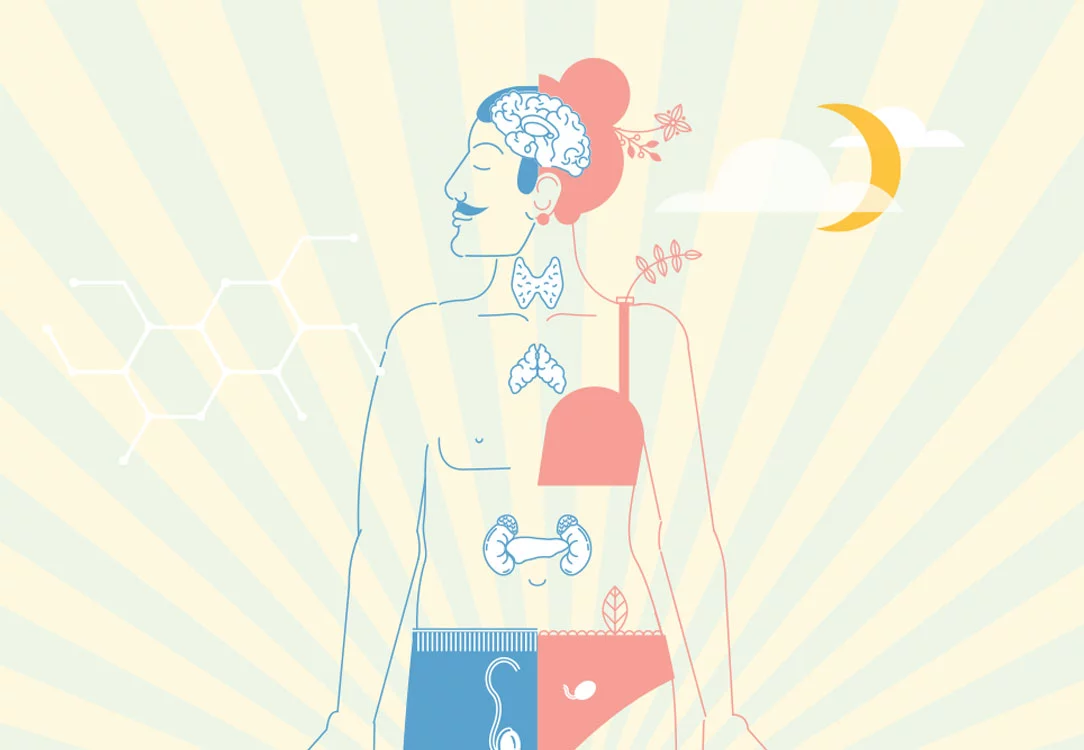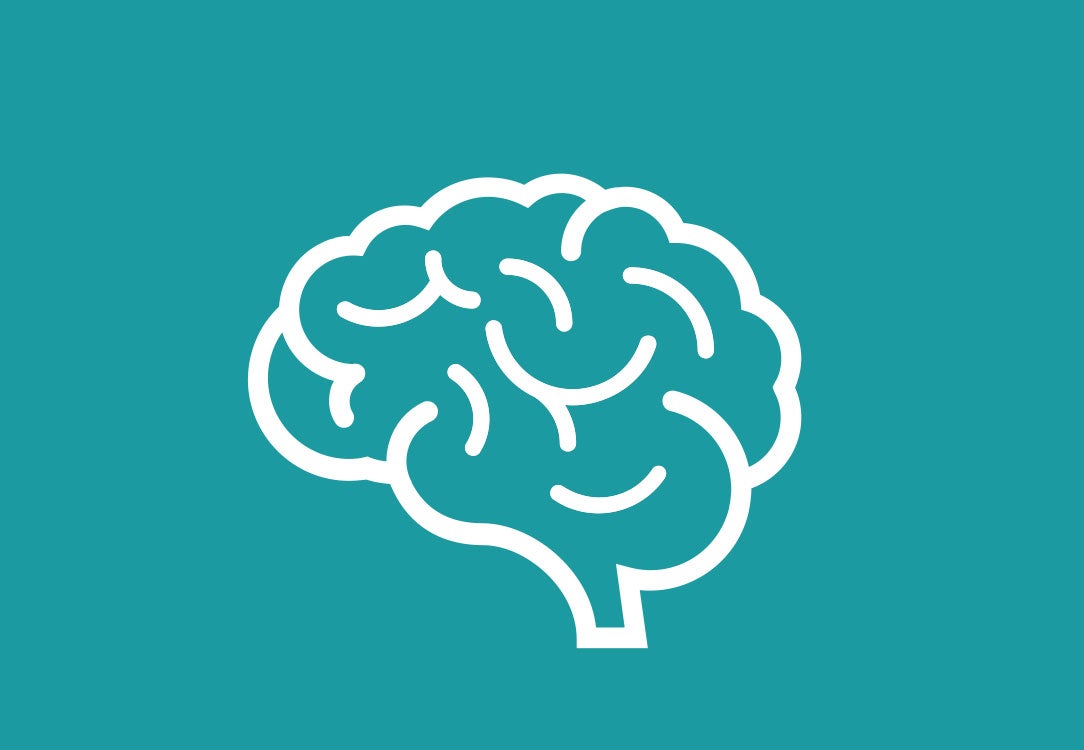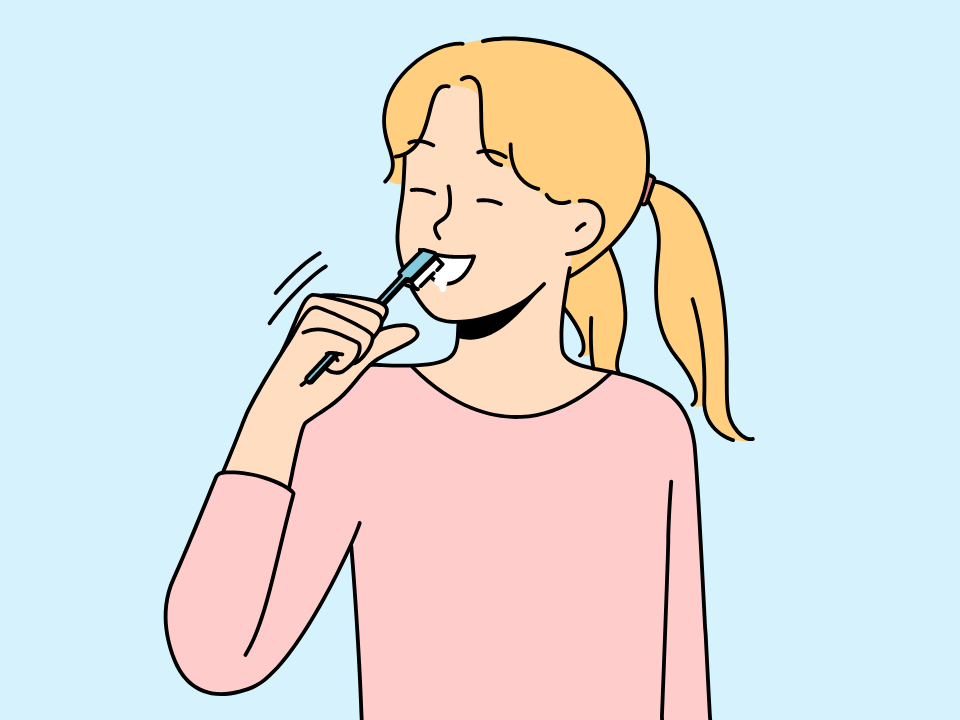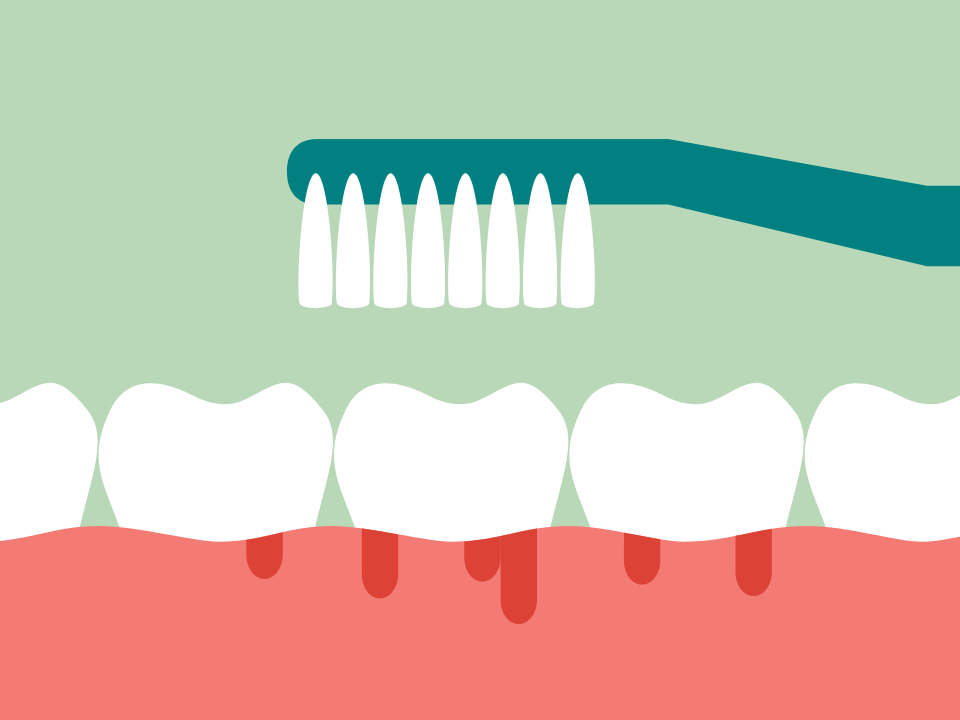Science Behind Why Hormones Affect Oral Health
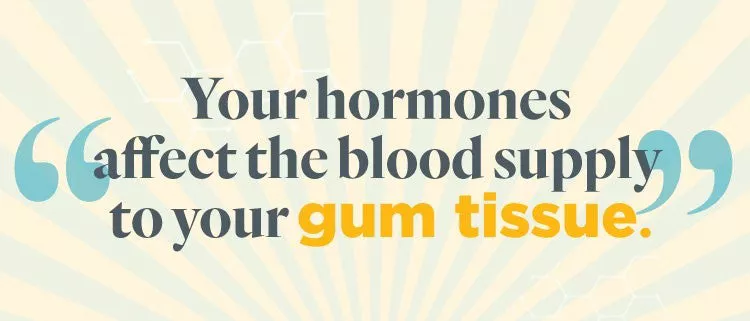
How Do Hormones Impact Your Oral Health?
Key Things to Know:
Hormones and Gum Health – Hormones impact blood flow to gum tissue and influence the body's response to infection and toxins, affecting overall oral health.
Women’s Oral Health Sensitivity – Women's oral tissues contain estrogen receptors, making them more susceptible to hormonal fluctuations that can lead to gum sensitivity, bleeding, and early-stage gum disease.
Hormonal Influence on Periodontal Disease – Changes in sex hormones can accelerate periodontal disease progression and bone loss by disrupting normal responses to infection and inflammation.
Men’s Oral Health and Hormones – While hormonal effects on men are less direct, lifestyle choices and lack of awareness about oral health connections can lead to neglect, increasing risks of gum disease and decay.
Medication Side Effects in Men – Men taking prescription drugs for conditions like heart disease may experience dry mouth, which can contribute to tooth decay and gum disease.
The primary effect hormones and hormone changes have on oral health are through oral tissues. Your hormones affect the blood supply to your gum tissue.
These hormonal effects on oral health are especially acute for women who experience hormonal changes throughout their lives, starting with puberty, continuing with their menstrual cycle, and ending at menopause. For example, women's oral tissues have estrogen receptors. When estrogen levels change, so do the reactions in the oral tissues, which produce the symptoms and can lead to oral health issues like sensitive or bleeding gums, early-stage gum disease, or other oral problems.[ii]
The hormonal effects on men are less direct than those on women. Men tend to neglect overall and oral health more than women, so the impact of hormones on oral health for men is gender-related more than biological. For example, by ignoring things like heart health, men may be more likely to take prescription drugs for heart conditions that cause dry mouth, which can lead to tooth decay and gum disease. Also, men were less likely than women to know about the connection between overall health and oral health. This lack of awareness means they might not recognize the importance of regular care in either area, causing problems with both over time.[iii] To learn more about all the changes in women's oral health go through, read our "Women's Oral Health at all Life Stages" blog.
What Oral Changes Can Hormones Cause?
Key Things to Know:
- It can affect your teeth, gums, tongue, taste buds or cause dry mouth.
Oral health and hormones cause changes you might notice. Symptoms vary between individuals, so think of this as a list of possible effects hormones could have on your mouth.
Teeth
Dry Mouth
Gums
Tongue
Taste Buds
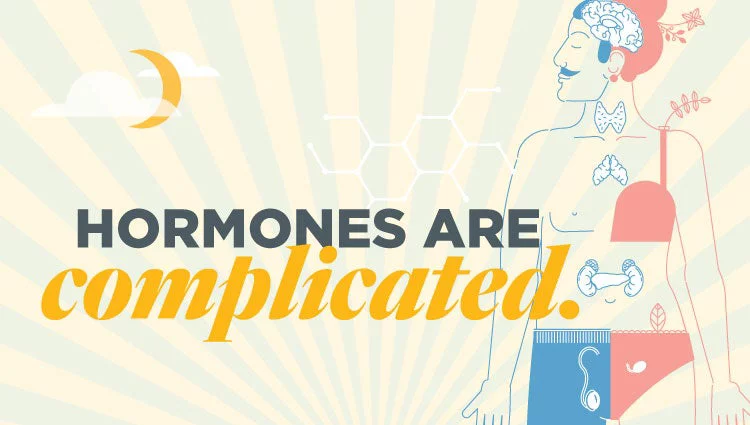
What Happens To Your Oral Health When Pregnant?
Key Things to Know:
Tooth Sensitivity & Pain – Hormonal changes and disrupted routines can cause discomfort.
Bleeding Gums – Up to 75% of pregnant women experience Pregnancy Gingivitis.
Gum Disease Risks – Untreated gum disease may lead to bone and tooth loss.
Preterm Labor Link – Gum disease increases the risk of preterm birth by 45%.
Pregnant women experience many symptoms in their changing oral health. For starters, many women experience teeth sensitivity and pain. Contributing factors could be hormonal changes and disruptions to the home care routine (i.e., they don't want to brush in the morning because of morning sickness).
Many pregnant women have bleeding gums, a gum disease symptom that affects up to 75 percent of pregnant women.[i] Research from the American Dental Association (ADA) suggests that these women have Pregnancy Gingivitis, a mild form of gum disease's first stage.[ii] Untreated gum disease can lead to serious consequences, like bone and tooth loss. Plus, gum disease has a connection to preterm labor; women that experienced it were 45 percent more likely to have gum disease than those who went full term.[iii] To learn more about the changes in your oral health during pregnancy check out our "Oral Health During your Pregnancy" article.
What Happens To Your Oral Health with Menopause?
Key Things to Know:
Taste & Sensitivity Changes – Menopause can affect taste, cause tooth pain, and lead to gum swelling or bleeding.
Bone Loss Risk – Estrogen and progesterone changes may weaken jawbone support.
Dry Mouth & Decay – Reduced saliva increases bacteria, leading to tooth decay and gum disease.
Burning Mouth Syndrome (BMS) – A burning sensation in the mouth with no visible cause, possibly linked to estrogen decline.
Menopausal hormonal changes with estrogen and progesterone also influence changes in oral health. Many menopausal women experience changes in how the food tastes, teeth pain, and swollen or bleeding gums. Hormone changes also contribute to bone loss in the jaw and supporting bones of their teeth. In addition, saliva production may decrease, causing dry mouth and creating an environment hospitable for bacteria to build up in the oral cavity. Increased bacterial load contributes to tooth decay and gum disease as well.
Another mysterious symptom of hormonal changes in women's oral health is Burning Mouth Syndrome (BMS). BMS is when women feel a burning sensation in their mouths. However, the condition does not appear to change anything in the oral cavity. In other words, dental professionals can't see any physical indications of BMS.[iv] While there is no known cause for BMS, the prevailing theory is that it is a side effect of the complicated association between decreasing amounts of estrogen and the nervous system.[v] To learn more about the changes in your oral health during menopause check out our "What to Expect for your Oral Health during Menopause" article.
Does High Progesterone Impact Oral Health?
Key Things to Know:
Progesterone & Gum Disease – Higher progesterone increases plaque buildup, raising gum disease risk.
Pregnancy Gingivitis – Mid-pregnancy progesterone surges contribute to gum inflammation.
Menstruation Gingivitis – Monthly progesterone spikes can cause swollen, red, and bleeding gums
We have discussed the impact of decreasing estrogen on the oral cavity. However, the other female hormone, progesterone, also affects oral health. Increases in progesterone can increase your risk of developing plaque that causes gum disease. For pregnant women, high progesterone happens in the middle months of pregnancy and contributes to pregnancy gingivitis.[vi]

Does Low Testosterone in Men Impact Oral Health?
Key Things to Know:
Bone Loss Risk – Low testosterone increases the risk of osteoporosis in the jaw.
Tooth Loss Link – Studies suggest low testosterone predicts higher tooth loss.
Gum Disease Connection – Low testosterone may contribute to chronic gum disease.
Men have a similar risk as women of developing osteoporosis during hormone changes. Research indicates that men who experience a decrease in testosterone are at a higher risk for developing osteoporosis, which can affect their jaw and supporting bone.[i] Another study indicates that low testosterone is a good predictor of tooth loss.[ii]
How Do You Treat Hormonal Gingivitis?
Main Solutions:
Early Treatment is Key – Untreated hormonal gingivitis can lead to bone and tooth loss.
Consistent Oral Care – Brush and floss daily with fluoride toothpaste.
Healthy Diet Matters – Eat nutrient-dense foods and avoid sugary or starchy snacks.
Regular Dental Visits – Get cleanings, exams, and possible treatments like fluoride toothpaste or antimicrobial rinses.
Catching gum disease early before it can become more serious is essential. If left untreated, hormonal gingivitis symptoms could worsen, leading to bone and eventually tooth loss.
Find a Dentist Near You
For more information or to find a Smile Generation-trusted dentist near you, use our Find a Dentist Tool.
Find your trusted, local dentist today!
FAQs Around Hormonal Changes
Yes, hormonal fluctuations can lead to increased tooth sensitivity and pain. Changes in hormone levels, particularly during pregnancy, menstruation, and menopause, can make the gums more sensitive and prone to inflammation, which can contribute to discomfort and tooth pain.
Yes, low testosterone can negatively impact oral health. It has been linked to a higher risk of osteoporosis, which can weaken the jawbone, and studies suggest it may also contribute to tooth loss. Additionally, there is a possible connection between low testosterone and chronic gum disease, though more research is needed.
Yes, hormonal fluctuations can lead to increased tooth sensitivity and pain, especially in women.
Yes, hormonal changes can lead to gum pain due to increased blood flow and inflammation in the gums. This is common during pregnancy, menstruation, and menopause.
Yes, hormonal changes can contribute to the development of canker sores. Many women experience an increase in canker sores during menstruation due to hormonal fluctuations.
Yes, hormonal changes can make gums more prone to bleeding, particularly during pregnancy and menstruation. Increased blood flow and inflammation make the gums more sensitive to irritation.
Sources
[i] myclevelandclinic.org. n.d. Hormones: What They Are, Function & Types. [online] Available at: <https://my.clevelandclinic.org/health/articles/22464-hormones> [Accessed 31 March 2025].
[i] Grover CM, More VP, Singh N, Grover S. Crosstalk between hormones and oral health in the mid-life of women: A comprehensive review. J Int Soc Prev Community Dent. 2014;4(Suppl 1):S5-S10. doi:10.4103/2231-0762.144559
[ii] perio.org. n.d. Gum Disease and Women - American Academy of Periodontology. [online] Available at: <https://www.perio.org/for-patients/gum-disease-information/gum-disease-and-women/> [Accessed 31 March 2025].
[iii] Lipsky MS, Su S, Crespo CJ, Hung M. Men and Oral Health: A Review of Sex and Gender Differences. Am J Mens Health. 2021;15(3):15579883211016361. doi:10.1177/15579883211016361
[iv] Menopausecentre.com.au. n.d. Burning Tongue. [online] Available at: <https://www.menopausecentre.com.au/burning-tongue/> [Accessed 31 March 2025].
[v] my.clevelandclinic.org. 2022. Hormones and Oral Health. [online] Available at: <https://health.clevelandclinic.org/hormones-and-oral-health> [Accessed 31 March 2025].
[vi] Lichterman, G., 2021. How does your sense of taste change across your menstrual cycle?. [online] myhormonology.com. Available at: <https://www.myhormonology.com/sense-of-taste-across-menstrual-cycle/#:~:text=During%20Week%201%20in%20your,the%20higher%20this%20hormone%20climbs.> [Accessed 31 March 2025].
[i] Pregnancy and Oral Health – Centers for Disease Control. Cdc.gov. https://www.cdc.gov/oral-health/hcp/conversation-tips/talking-to-pregnant-women-about-oral-health.html. Accessed March 31, 2025.
[ii] Women's Hormones and Dental Health - American Dental Association. Mouthhealthy.org. https://www.mouthhealthy.org/all-topics-a-z/womens-hormones-and-dental-health. Accessed March 31, 2025.
[iii] Radochova V, Stepan M, Kacerovska Musilova I, et al. Association between periodontal disease and preterm prelabour rupture of membranes. J Clin Periodontol. 2019;46(2):189-196. doi:10.1111/jcpe.13067
[iv] Dahiya P, Kamal R, Kumar M, Niti, Gupta R, Chaudhary K. Burning mouth syndrome and menopause. Int J Prev Med. 2013;4(1):15-20.
[v] Taga, T., Ito, K., Takamatsu, K. et al. Menopausal symptoms are associated with oral sensory complaints in perimenopausal women: an observational study. BMC Women's Health 21, 262 (2021). https://doi.org/10.1186/s12905-021-01401-6
[vi] my.clevelandclinic.org. 2022. Hormones and Oral Health. [online] Available at: <https://health.clevelandclinic.org/hormones-and-oral-health> [Accessed 31 March 2025].
[vii] Frisbee, DMD, E., 2021. Women's Hormones and Oral Health. [online] WebMD.com. Available at: <https://www.webmd.com/oral-health/hormones-oral-health> [Accessed 31 March 2025].
[i] Benscosme, RDH, MA, CHES, J., 2016. Sex-Based Differences in Oral Health - Dimensions of Dental Hygiene | Magazine. [online] dimensionsofdentalhygiene.com. Available at: <https://dimensionsofdentalhygiene.com/article/sex-based-differences-in-oral-health/> [Accessed 31 March 2025].
[ii] Singh BP, Makker A, Tripathi A, Singh MM, Gupta V. Association of testosterone and bone mineral density with tooth loss in men with chronic periodontitis. J Oral Sci. 2011;53(3):333-339. doi:10.2334/josnusd.53.333
[iii] Kellesarian SV, Malmstrom H, Abduljabbar T, et al. "Low Testosterone Levels in Body Fluids Are Associated With Chronic Periodontitis". Am J Mens Health. 2017;11(2):443-453. doi:10.1177/1557988316667692
Smile Generation blog articles are reviewed by a licensed dental professional before publishing. However, we present this information for educational purposes only with the intent to promote readers’ understanding of oral health and oral healthcare treatment options and technology. We do not intend for our blog content to substitute for professional dental care and clinical advice, diagnosis, or treatment planning provided by a licensed dental professional. Smile Generation always recommends seeking the advice of a dentist, physician, or other licensed healthcare professional for a dental or medical condition or treatment.


